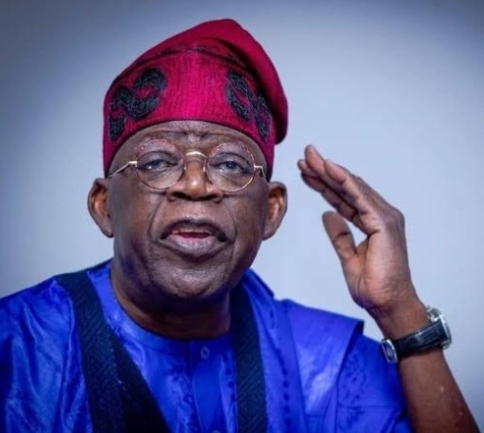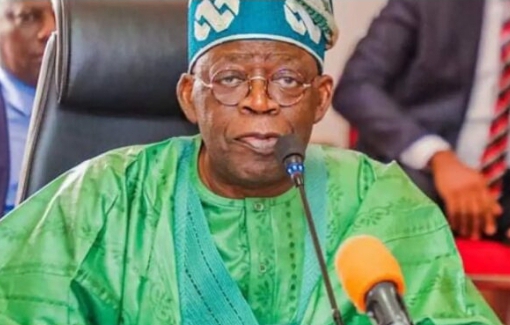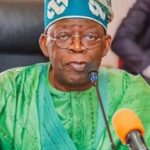[By Idowu Faleye: +2348132100608]
From the persistent insecurity ravaging northern states to the food insecurity crippling the citizens nationwide, Tinubu’s government policies seem to lack the precision and depth needed to tackle these multifaceted problems. Why is this the case? And why does the promise of ‘Government of National Competence‘ made by Ashiwaju Tinubu turn out to be an illusion? These are the questions Nigerians are asking, frustrated by the broken promises and missed opportunities.
Imagine a ship lost in turbulent water, its crew unsure which way to steer, each direction presenting more peril than safety. This is the state of Nigeria today—a nation adrift, its government policies failing to provide clear direction. The new administration sets out with promises to correct course, but more often than not, most of its policies miss the mark. Rather than address Nigeria’s deep-rooted problems, they circle the edges, leaving the nation’s most critical challenges unresolved.

When Bola Tinubu became the president-elect, he promised a cabinet grounded in competence—an administration filled with experts and not political sycophants. His words resonated with hope. Yet, barely months into his administration, political patronage has undermined this vision, leaving Nigerians disappointed and disillusioned once again. The failure to deliver on the promise of a meritocratic government has further aggravated public distrust, casting a shadow over every policy decision made.
This isn’t just about missed promises; it’s about the consequences of ineffective governance. Nigerian problems are interwoven, with one issue aggravating another. Insecurity cripple agriculture, leading to food shortages. Power shortages scare away foreign investment, which, in turn, keeps unemployment high. Nigeria’s problems are vast, and its policies remain alarmingly inadequate.
Insecurity remains one of Nigeria’s most pressing concerns, as insurgencies and criminal activities destabilize the country. Statistics from the Global Terrorism Index highlight that Nigeria ranks third among the countries most impacted by terrorism, following Afghanistan and Iraq. The North has been the epicentre of this crisis, with Boko Haram’s continuous attacks displacing over 2 million people, crippling agriculture, and fostering an environment where terrorism thrives.
In Borno state, for example, insurgency has made farming nearly impossible, causing food insecurity. As a result of insecurity, government expenditures have ballooned on military operations, drawing funds away from essential development projects like infrastructure and education. This vicious cycle leaves the economy in tatters and Nigeria’s global standing diminished.

Insecurity directly fuels food insecurity, leading to hunger and malnutrition across vast regions of the country. Nigeria’s agricultural productivity, once a key driver of the economy, is now crippled by instability. With farming disrupted, protests and social unrest over rising food prices have erupted, creating yet another layer of tension.
A study conducted by the International Food Policy Research Institute (IFPRI) indicated that food prices in Nigeria had increased by an alarming 200% due to supply chain disruptions and insecurity. It’s a painful irony that Nigeria, with its vast arable land, continues to import basic foodstuffs because insecurity has paralysed local production.
Read also: The Detrimental Impact of Quick-Fix Policies on Nigeria’s Development
Nigeria currently has the second-highest unemployment rate globally. Despite efforts at creating jobs, there’s a clear gap between policy intentions and actual outcomes. The NYSC program, which involves recent graduates serving in various capacities, falls short of preparing them with the necessary skills that can encourage self-employment. The government is considering launching another program similar to N-Power which would provide monthly stipends to participants. However, there are concerns that this approach may also fail to address the underlying issues
A study from the National Bureau of Statistics shows that over 13 million Nigerian youth remain unemployed, leading to a sharp rise in crime and social unrest. Without meaningful intervention, the country risks losing a generation to hopelessness and crime. Insecurity further worsens food security, as unemployed youth turn away from agriculture, exacerbating Nigeria’s already severe food shortages.

For decades, power shortages have strangled the Nigerian economy, and government policies have done little to change that. The country generates about 4,000 megawatts of electricity daily, yet the demand exceeds 30,000 megawatts. This shortfall has far-reaching consequences, particularly in manufacturing, where industries operate at less than 50% capacity due to unreliable power supplies. The Manufacturers Association of Nigeria (MAN) estimates that manufacturers spend about $14 billion annually on alternative energy sources such as diesel generators.
This lack of reliable power not only hinders economic development but also deters foreign investment. Investors are reluctant to engage in Nigeria’s industrial sector, where the cost of production is inflated by an unreliable energy supply. Without drastic reforms in the energy sector, Nigeria’s potential for industrial growth will remain stifled.
Read Also: Nigeria Legal System and Penalties Are Urgently in Need of Reform
Corruption in Nigeria has become deeply institutionalized, eroding trust in governance and undermining any potential for progress. Transparency International ranked Nigeria 150th out of 180 countries in its 2022 Corruption Perceptions Index, illustrating the pervasiveness of this issue. This systemic corruption has far-reaching effects, discouraging both foreign and domestic investment and reducing the efficiency of public services.
For example, a World Bank report estimated that Nigeria loses over $4 billion annually to corrupt practices in the oil sector. Public officials manipulate contracts and embezzle funds meant for development projects, while the legal system remains ill-equipped to handle cases of grand corruption. A legal system that is unable to deter crime further weakens investor confidence and perpetuates economic stagnation.
Read Also: The Trend of Insecurity in Nigeria. [Part 1]
Nigeria’s educational system is in crisis. According to UNESCO, Nigeria has the highest number of out-of-school children globally, at over 20 million, yet, Tinubu’s government enacted an age restriction education policy that will eventually multiply the number of out-of-school children. The current curriculum is outdated and fails to equip students with the skills necessary for modern-day challenges, including entrepreneurship and problem-solving abilities. The disconnect between education and the needs of the economy further exacerbates youth unemployment, contributing to the vicious cycle of poverty and insecurity.
Nigeria’s problems are deeply interconnected. Insecurity prevents agricultural productivity, which contributes to food insecurity. Food insecurity fuels social unrest, which discourages foreign investment. Corruption undermines the legal system, deterring investors and compounding unemployment. The lack of reliable power further weakens industry, exacerbating unemployment and economic stagnation. Each problem feeds into the next, creating a vicious cycle that policy after policy fails to address.
Read Also: The Trend of Insecurity in Nigeria. [Part 2]
The solution to these myriad issues lies not in quick fixes but in a competent, technocratic government. Nigeria needs leaders who prioritize long-term solutions over political expediency. A government of national competence would cultivate leaders who are intellectually engaged with the country’s challenges.
Failure to constitute such a government, as promised by President Tinubu, has deepened public disillusionment. Instead of appointing experts with the skills necessary to navigate Nigeria’s complex problems, the administration has filled key positions with political allies, undermining the potential for effective governance.
Read Also: The Hidden Margins Between Politics and Governance in Nigeria
Nigeria stands at a critical juncture. The country’s challenges require not just any government but one that values competence, merit, and long-term thinking. The current administration’s failure to fulfil its promise of a government of national competence has compounded Nigeria’s problems. It’s time for a paradigm shift—one that prioritizes the appointment of qualified experts over political cronies. Only then can Nigeria hope to break free from its cycle of policy failures and realize its full potential.
References:
Global Terrorism Index. (2022).
World Food Programme (2023).
National Bureau of Statistics (2021).
Manufacturers Association of Nigeria (2023).
Transparency International (2022).
World Bank (2022).
UNESCO (2022).
Born in Ekiti State, Nigeria, Idowu Faleye is a Policy Analyst and IBM-certified Data Analyst with an academic background in Public Administration. He’s the Lead Analyst at EphraimHill Data Consult and the Publisher of EphraimHill DataBlog, which posts regular topics on issues of public interest. He can be reached via WhatsApp at +2348132100608 or email at ephraimhill01@gmail.com
© 2024 EphraimHill DC. All rights reserved.This article is the intellectual property of EphraimHill DataBlog. For permission requests, please contact EphraimHill DC at ephraimhill01@gmail.com.











































![The Trend of Insecurity in Nigeria. [Part 2]](https://ephraimhilldc.com/wp-content/uploads/2024/09/Computer-Monitoring-of-Remote-areas.png)



































